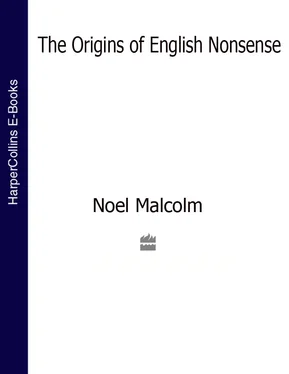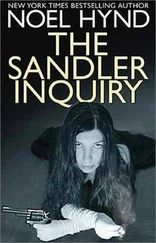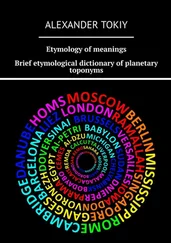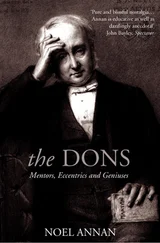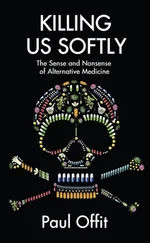Great Jacke-a-Lent , clad in a Robe of Ayre,
Threw mountaines higher then Alcides beard:
Whilst Pancradge Church, arm’d with a Samphier blade,
Began to reason of the businesse thus:
You squandring Troglodites of Amsterdam,
How long shall Cerberus a Tapster be?
‘You squandring Troglodites of Amsterdam’ is, however, a piece of pure mock-Marlowe, with a participial adjective, an exotic term and a resonant place-name, all wrapped up in the declamatory vocative. The most sustained piece of Marlovian nonsense achieved by Taylor was in the opening section of Sir Gregory Nonsence his Newes from No Place (poem II); and there the management of large-scale syntactical structure through whole paragraphs of verse is much more assured, with the rhythmical character of the poetry also gaining in the process.
But it was Marlowe’s diction that Taylor imitated most closely. Grandiose participial adjectives recur in his six sonnets in praise of Coryate: ‘Conglomerating Ajax , in a fogge’; ‘And with conglutinating haughty pride’; ‘Whilst thunder-thwacking Ossa limps and halts’. These sonnets also exhibit the ‘rising’ syndrome (‘’gan to swell’; ‘leaps and vaults’), as does the opening section of The Essence of Nonsence upon Sence (poem 17):
Then mounted on a Windmill presently
To Dunstable in Derbyshire I’le flie …
From thence I’le soare to silver Cynthia’s lap,
And with Endimion take a nine years nap …
As for hyperbole, one of the most essential techniques of this type of nonsense poetry is to out-hyperbolize hyperbole, doing to hyperbole what hyperbole itself does to ordinary speech. The privative suffix does not play a prominent part in these poems, but exotic geographical (and classical) names are omnipresent:
Then shall the Perecranians of the East …
All knuckle deep in Paphlagonian Sands,
Inhabite Transylvanian Netherlands …
And one other stylistic tic of Marlowe’s poetry (not mentioned by Kernan) is also picked up by Taylor: the citing of large numbers. Where Marlowe had written
My lord, the great commander of the world,
Besides fifteen contributory kings
Hath now in arms ten thousand janizaries …
Two hundred thousand footmen that have served
In two set battles fought in Graecia … 27
Taylor could write:
Then did the Turntripes on the Coast of France ,
Catch fifteene hundred thousand Grasshoppers,
With fourteene Spanish Needles bumbasted,
Poach’d with the Egs of fourscore Flanders Mares 28
That Marlowe’s style invited parodic imitation seems clear; and yet, a direct parody of it (which Taylor’s verses are not) was curiously difficult to achieve. Its most obvious feature, heightened diction, could scarcely be heightened any further. The best early parody of it, Pistol’s ranting in Henry IV Part Two , keeps the diction at more or less the same level and dislocates the sense:
Shall packhorses,
And hollow pamper’d jades of Asia,
Which cannot go but thirty mile a day,
Compare with Caesars, and with Cannibals,
And Troiant Greeks? Nay, rather damn them with
King Cerberus; and let the welkin roar. 29
The full comic potentialities of this sort of declamatory poetry could only be exploited after it had undergone another transformation (not itself parodic), at the hands of the satirist John Marston.
Marston’s two sets of satires were published in 1598: ‘Certaine Satyres’ as the second half of the volume The Metamorphosis of Pigmalions Image , and ten further satires published as The Scourge of Villanie later in the year. These poems were modelled in the first place on the satires of Persius and Juvenal; but they were also steeped in the Marlovian style of declamatory verse. They abound in exclamations (‘O Hecatombe! o Catastrophe!’; ‘O hidden depth of that dread Secrecie’), 30rhetorical questions (‘Nay, shall a trencher slave extenuate, / Some Lucrece rape? and straight magnificate / Lewd Jovian lust?’), 31and vocative constructions brimming with classical names:
Ambitious Gorgons , wide-mouth’d Lamians ,
Shape-changing Proteans , damn’d Briareans ,
Is Minos dead? is Radamanth a sleepe?
That ye thus dare into Joves Pallace creepe? 32
Although deeply influenced by Marlowe, Marston was not trying simply to reproduce his style. Following his Roman models, he aimed at a more concentrated and crabbed type of invective; and this meant increasing the linguistic density of the verse. One way to do this was to pile up adjectives or nouns (‘O what a tricksie lerned nicking straine / Is this applauded, sencles, modern vain!’; ‘Fidlers, Scriveners, pedlers, tynkering knaves, / Base blew-coats, tapsters, brod-cloth minded slaves’). 33Another way of thickening the diction was to mix in inkhorn terms such as ‘circumference’, ‘esculine’ and ‘capreall’: this conveyed a sense of intellectual intensity to match the intensity of feeling. But at the same time Marston was also trying to give his denunciations an unprecedented sense of gross physical disgust: for this purpose he repeatedly exploited a range of vocabulary which included ‘slime’, ‘dung’, ‘muddy’, ‘reeking’, ‘stinking’, ‘slimie’ and ‘putrid’. And so, intermixed with his high latinate diction and resounding classical names was an utterly different register of language, which not only referred to slime and dung but also described the material props and settings of vice in late sixteenth-century England: it alluded, for example, to aphrodisiac foods in a manner unthinkable in high classical diction (‘marrow pies, and yawning Oystars’; ‘A Crab’s baked guts, a Lobster’s buttered thigh’), 34and alongside the place-names of classical mythology it referred to scenes of contemporary vice such as Pickt-hatch and Stourbridge Fair. Marston had brought Marlovian declamation out of Persia and Syria and placed it in the streets – and gutters – of Elizabethan England.
This stylistic mixture was improbable, unstable and potentially explosive. It deliberately violated all the canons of taste which distinguished high diction from low. It was sustained only by the sheer intensity of the satirical charge with which Marston managed to invest it; and the moment that the reader ceased to believe in this, the entire project could become almost hysterically funny. The anonymous authors of the Cambridge Parnassus plays (1598–1601) were quick to seize on its comic potential: they introduced a Marston-figure, ‘Furor poeticus’, whose outpourings characteristically combine Marlowe, inkhorn terms and low diction:
The great projector of the Thunder-bolts,
He that is wont to pisse whole clouds of raine
Into the earthes vast gaping urinall,
Which that one ey’d subsizer of the skie,
Don Phoebus , empties by caliditie:
He and his Townesmen Planets bring to thee
Most fatty lumps of earths faelicitye. 35
Ben Jonson contributed to the ridicule of Marston in his Poetaster (1601), where the character Crispinus (representing Marston) declaims the following poem:
Ramp up, my genius; be not retrograde:
But boldly nominate a spade, a spade.
What, shall thy lubrical and glibbery Muse
Live, as she were defunct, like punk in stews?
Alas! That were no modern consequence,
To have cothurnal buskins frighted hence.
No; teach thy incubus to poeticize;
And throw abroad thy spurious snotteries … 36
Later in the play a purge is administered to Crispinus, who spews up fustian words such as ‘turgidous’, ‘ventositous’, ‘furibund’ and ‘fatuate’. Jonson had in fact already ridiculed Marston’s fustian tendencies: most of the obscure terms in the fustian speech in Every Man out of his Humour (quoted above, p. 33) were drawn either from The Scourge of Villanie or from Marston’s Histriomastix. 37And to some extent Marston had himself invited this treatment, since he had not only denounced ‘fustian’ poetry in The Scourge of Villanie :
Читать дальше
